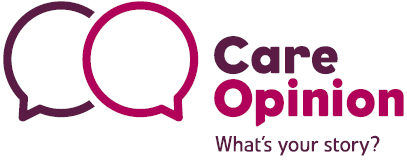Osteoporosis Service
Our service team consists of Osteoporosis Nurses and Nurse Specialists.
What is osteoporosis?
Osteoporosis is a condition in which thinning of the bones makes the bones weak. It is known as a silent disease. Broken bones (fractures) happen easily in people with osteoporosis. Any bone may fracture in osteoporosis including bones in the spine and the hip.
How can I be referred for a DXA scan?
A DXA scan is a type of X-ray and uses radiation, but the dose is very small. There has to be a risk factor for osteoporosis for this scan to be undertaken. The age group for a DXA scan is 18 years and over.
Referrals for a DXA scan can be accepted from either a Consultant within the Sherwood Forest Hospitals Trust or via your GP.
If you have any questions please contact us on the numbers listed on the right-hand side of the page.
You have been referred for a bone density measurement because you may be at risk of osteoporosis.
Osteoporosis is a condition in which thinning of the bones makes the bones weak. Broken bones (fractures) happen easily in people with osteoporosis. Any bone may fracture in osteoporosis including bones in the spine and the hip.
The most accurate test to identify osteoporosis is a bone mineral density (BMD) measurement using a DXA scanner. A measurement is usually made of your lower spine (back) and one hip.
The DXA scanner is a piece of equipment that measures the amount of calcium in your bones. This tells us about the strength of your bones and how likely you are to be at risk of breaking bones in the future.
You will be asked to lie down for the scans. For the spine scan your legs will be supported on a big cushion. For the hip scan one foot will be supported to keep your leg in the right position. You will be asked to keep still while each scan is done (about 2 to 3 minutes each). The arm of the scanner will move during the scan but you will not be in an enclosed space.
DXA uses very small amounts of X-rays. The dose of X-rays is about the same as you would be exposed to naturally in a day and is much less than in other medical tests such as a chest X-ray. It is therefore a very safe test.
However, X-rays can harm a developing baby, so please tell us before your scan if there is a chance you may be pregnant.
No special preparation is required. Metal interferes with the measurement and must be kept away from the area of the scan, so you will be asked to take off any garments containing metal such as zips, corsets and under wired bras. If you wear clothes without any metal then you will not need to undress. You will otherwise need to change into a gown.
The scan result may also be affected if you have recently had other tests such as an isotope scan or barium X-ray. If this is the case your scan may need to be delayed.
The scan will take about 20 minutes in total. Whilst we try to see patients at the time of their appointment, delays can sometimes occur. If this happens we will keep you informed.
Whilst the scan can tell us a lot about how much you may be at risk of developing osteoporosis, the questionnaire gives us important information about other things that may increase your risk of developing osteoporosis. Furthermore, if you need treatment the information from the questionnaire will help us advise the best course of treatment for you.
The results may be discussed with you after the scan. A report, which gives the results of the scan, will be sent to the doctor who referred you and your GP. We will let you know when the scan result should reach your doctor.
Depending on the information given by the doctor who referred you, we may also arrange other tests at the time of the scan. These may include X-rays and blood tests.
If you have osteoporosis you may be advised to take treatment, usually in the form of tablets. It may also be helpful for you to have other tests to identify whether there is an underlying cause for your osteoporosis. You may require an appointment in the Osteoporosis clinic to have these tests and discuss the results.
Before your DXA scan, please remember to:
- Bring your completed questionnaire
- Let us know if you have had a recent a recent barium X-ray or isotope scan within the last 4 weeks
- Let us know if you could be pregnant
- Try and wear clothes with no metal
Osteoporosis Service
Location
Tony Hughes Treatment Centre at Mansfield Community Hospital
Opening hours
Monday to Friday, 8.15am to 4.15pm
Call
01623 785550 - Appointment queries
01623 785124 - Osteoporosis nurses (answer machine service - please leave a message and someone will return your call as soon as possible)





